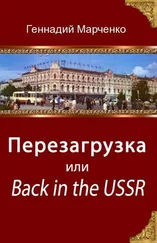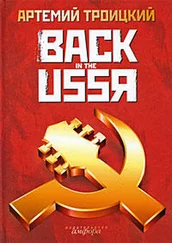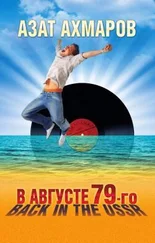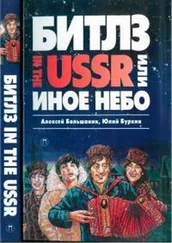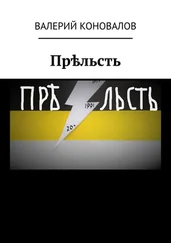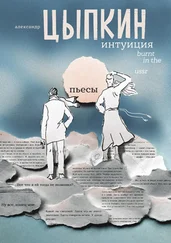The weather is warm and I go into the park to take off my sweater. Just inside the gate is a photo display of buildings that have recently been constructed in the town. One of them is of a kindergarten built in an unusual style. It might be the one Natasha attends. After an hour of walking around the town I find it. It’s playtime and I catch sight of Natasha amongst the children. Making sure she can’t see me I wait until the end of the working day when my wife will come to pick her up.
Olga cannot hide her shock and disgust at the sight of me. “I suppose I knew you’d find us sooner or later.”
I assure Olga that her sister didn’t betray her. “All I want is to have a talk.” We buy bread and yoghurt and go into the woods. Our discussion is fruitless. It’s obvious to Olga that I haven’t given up drinking.
“Look, Vanya, let’s give it a year. If you can stay on the wagon for that time we’ll come back to you. If not, I’m going to divorce you.”
“Agreed. I’ll go back to my parents for a while, get myself straightened out.”
We both know we are kidding each other and ourselves. Seeing that my journey has been pointless, I find out the time of the trains and tell Olga not to see me off. I have one rouble left in my pocket. I buy an ice cream for Natasha and cigarettes for myself, so that I won’t have to be in anyone’s debt by cadging them. It won’t be easy to leave Estonia without a ticket so I plan to hop onto a freight-train. I wait at the station till dusk, when I might be able to slip unnoticed into a goods wagon. However at around ten in the evening my wife appears. She’s guessed that I have no money and proposes that I come home to rest in her flat for two or three days until she gets her pay. Taking Natasha she goes to sleep at a friend’s house. Before she leaves I ask her to lock the door from the outside.
The dt’s begin again that night. While I still have a degree of control over myself I look about for something to distract me. Like any woman, Olga has no tools in the house, but I find a manicure set and use that to take her iron apart and put it together again, over and over again. All night long the neighbours on the other side of the walls sing abominations about me. This time the tune is from The Marriage of Figaro :
He mends the iron,
he mends the iron,
he mends the iron,
the irrrrrron… he mends!
Then the chorus joins in: Bravo, bravo, bravissimo…
I find some cotton wool and stuff up my ears but it doesn’t help. I run from one room to the other and back again. I take shower after shower, I heat up a large pan of borscht, anything to distract myself from the horrors. Above all I’m afraid of touching the gas cylinder. I imagine that after the explosion everyone will say: “His wife had only just got settled when that drunken bastard turned up and blew the whole block to kingdom come.”
In the morning Olga arrives to find me bending over the iron with cotton wool sticking out of my ears. She gives me some medicine that enables me to sleep a little. The following day she sees me off onto the train — no doubt wanting to make sure that I leave.
As we part I reassure her that everything will be all right, but in my heart I know we’ll never be able to live together again. Olga can’t live with her guilt for sending me to prison and I have no right to inflict my drunkenness on her and Natasha. I can’t even bear to see them around me; they are a constant reminder and reproach. Even if I stop drinking I will always feel guilty before them. The only thing to do from now on is get used to living apart.
I am depressed by the thought of losing my daughter. Although I’m of little use to her, she jumped for joy to see her drunken father at the gates of her nursery. And that is no bad thing.
Fifteen minutes into the journey and I’m drinking in the company of three girls who are looking for a fourth to make up a hand at cards. They are already drunk. It would be the grossest indecency to pretend that I don’t drink, especially as their invitation coincides with my wishes.
* * *
Dobrinin pours another glass for my mother. It doesn’t take much to make her drunk.
“You can give me all the vodka you want,” she shrieks, “but I won’t keep quiet. I know you’ve been with that whore again.”
Dobrinin smirks and walks out of the flat, leaving the front door open. He returns with the neighbours from across the landing. They stand in the doorway laughing.
“In case you were wondering what all the noise is about, there you are,” he points to my unhappy mother sprawled on the divan. She snarls and tries to fling a book at him but it lands at the foot of the divan.
This is too much for me. I shoo the neighbours out with my stick. Then I turn on Dobrinin and push him against the wall. He sinks to the floor, winded. I go to bed.
“I’ll fetch the police. Why did you take that bastard in?” I hear Dobrinin in the next room.
“Shut up. Leave it to me. I’ll sort him out.”
In the morning my mother looks at me with hatred in her eyes: “What the hell did you attack him for?”
“How can you let him laugh at you like that?”
“It’s none of your business. Get out!”
I had moved back to my parents’ flat while trying to decide what to do next, Now my decision is made. I move into a hostel and start to drink in earnest with the men who share my room. Others turn up, for we offer warmth and companionship without wives or mothers-in-law threatening to call the police.
I begin work in the DDT factory. My wife’s brother is a technician there and he keeps her informed of my condition. Hearing that I’m drinking again she puts pressure on me for alimony, promising to pay it back if I stop. I resent her for trying to control me, even from a distance. In any case I have nothing to send her. My pay-packet comes with the cost of visits to the sobering-up station already deducted. Then I have to pay off my debts. It is impossible to break out of this vicious circle. I cannot afford to rent a room of my own, but to live in the hostel and not drink is beyond human endurance. I try to spend my free time in the local library reading-room, but when I go home I always have to tip someone off my bed.
In the end I decide to leave town. I have an invitation from a former boss, Gantimirov, to go out and work for him at a chemical plant in Chimkent in Kazakhstan. There’s nothing to keep me in Chapaevsk. I am tired of that damned hostel, of shop No. 28 and the sobering-up station. I’m sick of my companions, too. They’ll forget me soon enough.
I pack a change of clothes and a supply of cigarettes. My younger brother Sashka gives me a tape-recorder and some Vysotsky tapes. Early one morning in the spring of 1968 I leave Chapaevsk on a southbound train.
I am awakened by a gentle tap on the shoulder. A policeman stands before me. “It is forbidden to sleep in railway stations, Comrade. Kindly sit up.” Giving me a smart salute, he walks off.
Checking my head to see if it has sprouted a crown overnight, I turn to the dosser beside me: “Did you see that? Am I dreaming?”
“Didn’t you hear what happened here last year?”
“No.”
“Chimkent exploded. It began when the police arrested a lorry driver on his way back from a party. The driver’s wife went to fetch his workmates. By the time they reached the station the police had beaten the man to death. They claimed he dropped dead from alcohol poisoning.
“By evening there was no Soviet authority left in Chimkent. The drivers hijacked bulldozers and flattened the police station. Rioters ran through the town killing any cops who got in their way. They sent in troops and in a few days the shops filled with scarce goods. The town calmed down. Then the MVD went round asking questions and people began to disappear. The cops who killed the driver were transferred to another area; their chief became head of a prison camp. You can guess the fate of the rioters who were sent there. Komsomol volunteers and troops kept order in town. We had no police for several months.”
Читать дальше
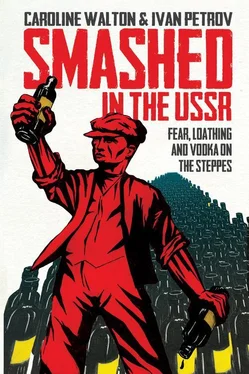
![Геннадий Марченко - Перезагрузка или Back in the Ussr. Книга 1. [СИ]](/books/53319/gennadij-marchenko-perezagruzka-ili-back-in-the-uss-thumb.webp)
